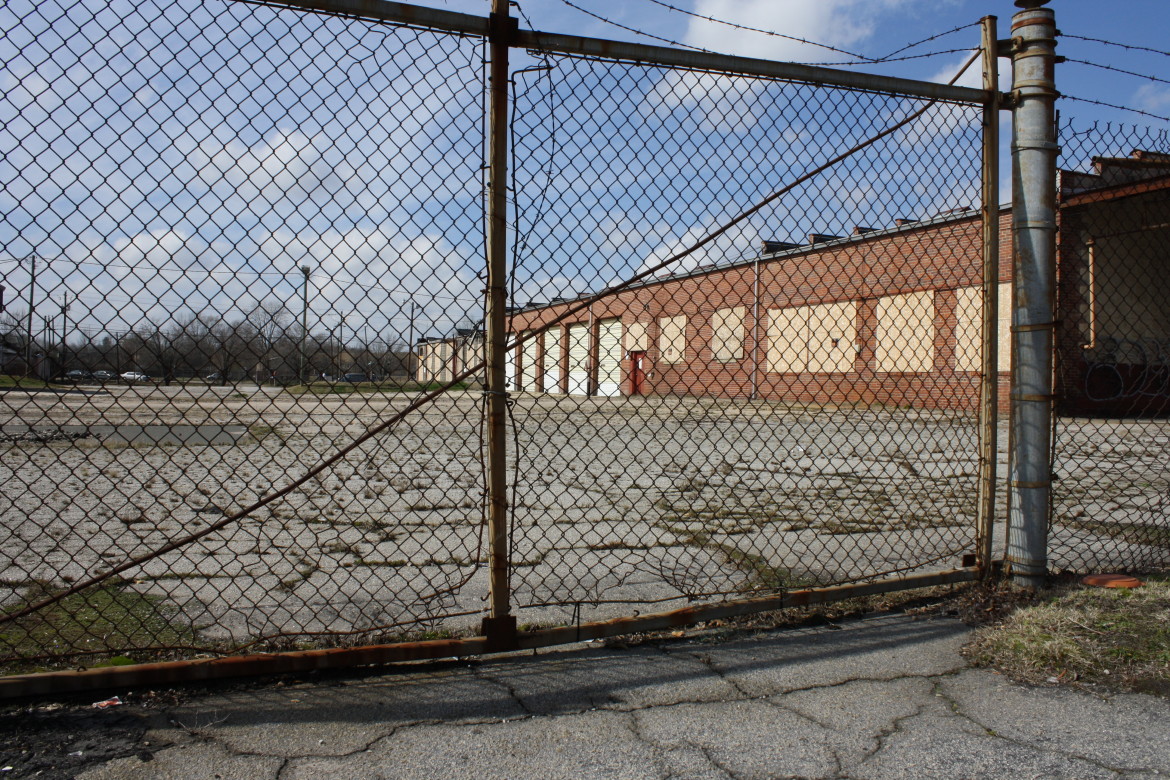The city is investigating an urban agriculture center for South Raleigh, but the project doesn’t sit well with some residents or city councilors.
Area residents oppose the center, claiming that they were not informed of the project and that it goes against their own plans to revitalize the area.
The center would be constructed on a blighted piece of land in South Raleigh and offer a place for residents to purchase produce where currently there are none. But this is a far cry from the small, organic community gardens that have been cropping up around Raleigh. The project has deep ties with commercial agriculture giants Cargill and Bayer CropScience, as executives from both companies sit on the Passage Home Board of Directors.
The city would purchase the $1.5 million property, which makes up one city block between South Blount, South Person, Branch and Bragg streets that once housed the Carolina Trailways Bus Service Station.
View Urban Ag Center Site in a larger map
It would then be leased to a joint organization comprised of Passage Home and Family Roots, Inc. The latter is an East St. Louis, Ill. based nonprofit started by Olympic athlete Jackie Joyner-Keerse that has experienced some financial problems in recent years.
The money for the project would come from Two Thirds General Obligation bonds, which are small bonds that don’t require a referendum.
Passage Home and Family Roots representatives say the center would bring economic growth, job training and much-needed food distribution to an area just south of downtown Raleigh.
Passage Home CEO Jeanne Tedrow said the center will be multi-functional. Produce would be grown at the center and then sold directly to residents, restaurants and distribution outlets. They will offer job training and research through partnerships with North Carolina State University and Wake Technical Community College.
“It’s about creating a center where food is grown and where people from the community would be able to participate in the growing of the food, the selling of the food, the marketing of the food and begin to look at ways in which economic development can be built around this kind of thing,” Tedrow said.
She said the center will also feature education, offering student tours so children can learn healthy eating habits and about food’s origin.
Because of its proximity and connection to agriculture and biotechnology giants like Cargill and Bayer CropScience, the group hopes to foster partnerships with other large-scale agribusiness companies to bring in more economic opportunities.
In a memo provided to council members for the committee meeting, Passage Home and Family Roots is also looking to connect with Novozymes, Syngenta and German chemical giant, BASF.
“We have been in Raleigh since 1986 and have looked for ways to be part of the community,” said Don Camden in an email. Camden is the chairman of the Passage Home Board of Directors and is a regional manager and assistant vice president at Cargill.
Camden said that Cargill has supported similar projects at schools and community centers.

The site of a potential new urban agriculture center in Raleigh. Photo by Ariella Monti.
But the project isn’t being welcomed with open arms.
The center is still in a “visionary” phase and a formal business plan won’t be complete until the end of March. This didn’t sit well with city councilors at the Budget and Economic Development committee meeting Feb. 14. Some, like Thomas Crowder, wanted more information about the project.
At the meeting, Lonnette Williams, chair of the Central Citizens Advisory Council, said the South Park Neighborhood Association has been working for almost five years to improve the quality of the neighborhood without any support from the city. No one has contacted either community group about this project, she said.
“We were authorized by the city to be involved in the planning and recommendations to things that were coming to our neighborhood for our own benefit,” she said.
In an email to the Record, Williams said there has been no transparency during the process.
“The Carolina Trailways Building is a valuable asset in our neighborhood and should not be given away behind closed doors when the residents and the city staff have been engaged in community engagement and revitalization planning with the land as an asset to the future development of the downtown South Park Neighborhood,” she wrote.
Last week the council approved the bond issue and the continuation of research for the project. The bond money isn’t tied to the project, so the council could decide at any time that they don’t like where the center is headed.
“We’re open to lots of discussion; we have some ideas and I think the council approval of the bond opens the possibility that we will be able to have rich discussion,” Tedrow said.
